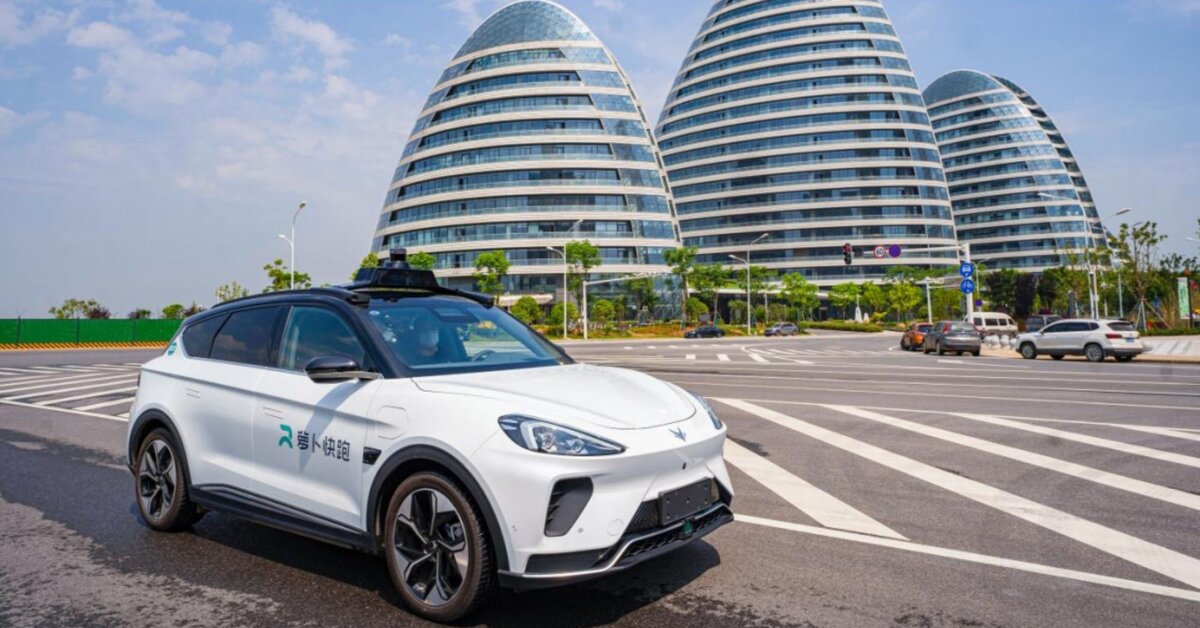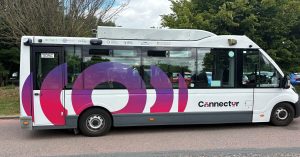Baidu Apollo, a leading player in the autonomous driving industry, continues to rapidly expand its autonomous driving service in the sprawling city of Wuhan, located in central China. Since the launch of its fully driverless robotaxi service in August 2022, Baidu Apollo has reported remarkable growth in various aspects of its operations, including fleet size, service area, and user coverage.
One of the most striking indicators of this expansion is the growth of Baidu’s fleet of fully driverless robotaxis in Wuhan, which has surged from a mere five vehicles just a year ago to an impressive 300 vehicles today. This exponential increase underscores Baidu’s commitment to advancing autonomous driving technology and providing cutting-edge services to its users.
One of the key milestones achieved by Apollo Go, Baidu’s autonomous driving service, is its record-breaking one-way service distance in Wuhan, which now stands at an impressive 95 kilometers. This achievement reflects the growing confidence in the capabilities of autonomous vehicles to handle longer and more complex routes, further cementing their potential as a viable mode of transportation.
In addition to extending the range of its services, Baidu Apollo has significantly expanded its operational footprint in Wuhan. The service area has grown from covering 100 square kilometers to a sprawling 1,100 square kilometers, making it accessible to a staggering four million potential users. This expansion not only reflects Baidu’s ambition but also its dedication to providing convenient and widespread access to autonomous transportation options.
Li Zhenyu, senior corporate vice president of Baidu and general manager of Intelligent Driving Group (IDG), remarked on the groundbreaking progress made by the company in the intelligent vehicle sector. He highlighted the successful implementation of autonomous driving on Wuhan’s intricate urban roads, emphasizing Baidu’s ability to quickly adapt and scale its operations to meet the growing demand for autonomous services.
Moreover, Baidu’s commitment to expanding its driverless car services is evident in its recent inclusion of Wuhan Tianhe International Airport in its coverage area. This move marks a significant milestone as Baidu becomes the first company in China to offer driverless airport rides, a testament to their dedication to pioneering new and innovative transportation solutions.
Baidu Apollo’s expansion efforts haven’t just led to an increase in scale; they’ve also yielded impressive results in terms of operational efficiency. The company reports a continuous reduction in the cost per vehicle per kilometer, showcasing its commitment to optimizing its services and delivering value to its users.
Notably, Apollo Go has witnessed a substantial increase in both average daily order volume and revenue per order. This financial growth indicates the growing popularity of autonomous driving services in Wuhan and suggests that users are embracing this innovative mode of transportation.
Baidu’s focus on safety remains paramount as it continues to refine its autonomous driving technology. Zhang Yaqin, a member of the Chinese Academy of Engineering and the Dean of Tsinghua University’s Institute of Intelligent Industry, praised Baidu’s safety record, noting that the company’s autonomous driving safety testing has surpassed an impressive 70 million kilometers. Compared to human driving, Baidu’s autonomous vehicles have demonstrated a remarkable improvement in safety, with a safety record that is nearly 10 times better, showcasing the potential for autonomous driving to enhance road safety.
As of June 30, 2023, Apollo Go has provided over 3.3 million rides to the public, underlining its growing popularity and acceptance among users. Baidu Apollo remains steadfast in its commitment to advancing its technology, improving service quality, enhancing the user experience, and expanding its range of travel scenarios. The ultimate goal is to facilitate the transition from localized “limited areas” to widespread “full-scale” implementation of fully autonomous driving, further revolutionizing the future of transportation in Wuhan and beyond.







